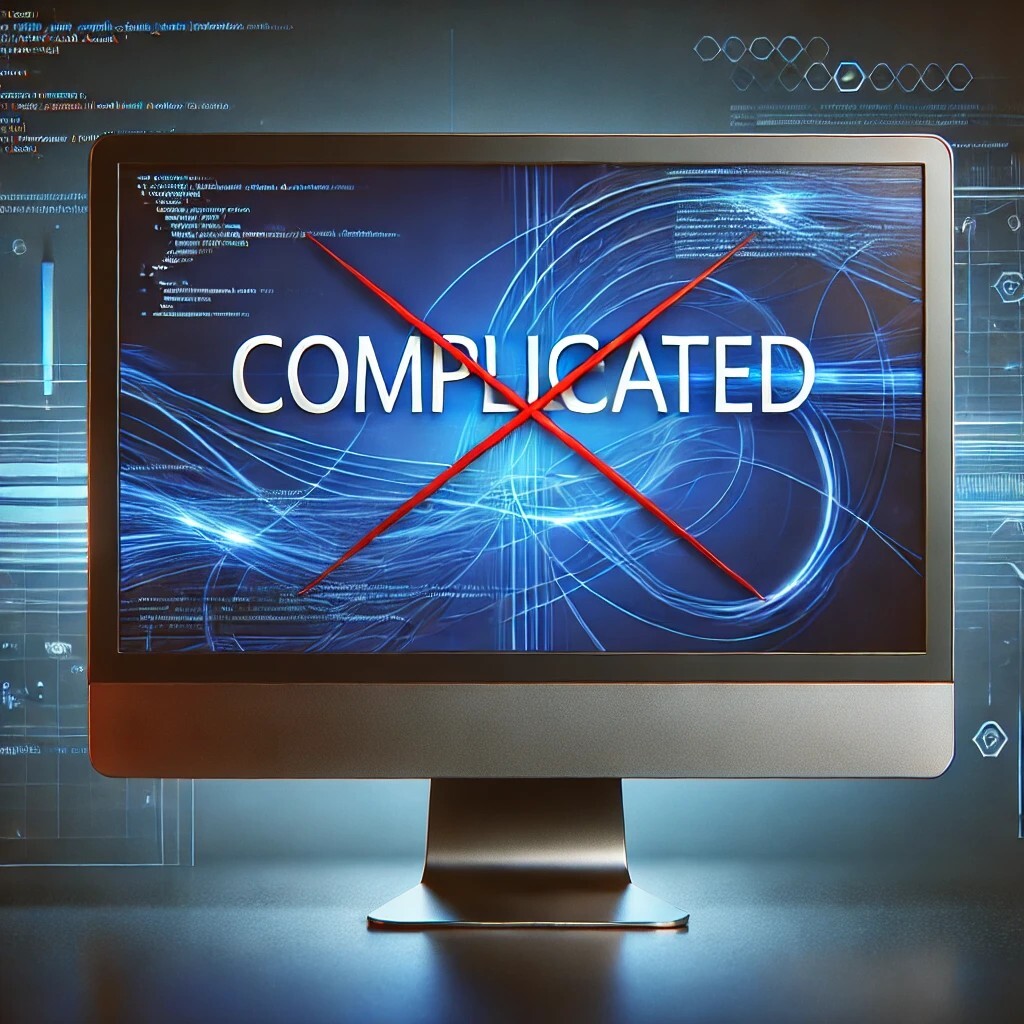Many people believe the word “simple” means weak or basic, as if you’re settling for less. In cybersecurity, teams often assume that if a tool is difficult to use, it must be powerful. They often believe that the more complicated the tool and the more people needed to set up and maintain it, the more capable it is in identifying and stopping threats.
But here’s the thing: simple doesn’t mean simplistic. IT and security teams are already stretched thin on budget, time, and staffing. The last thing they need is to spend half their day figuring out how to use their tools. They need clear visibility into what's happening in their environment, and fast, effective ways to stop threats.
Why is Everything So Complex?
Cyber threat actors continually refine their malicious techniques, employing increasingly sophisticated attack methods to gain unauthorized access to systems. While it may be tempting to chase the newest innovation that promises to protect from the latest attack vectors, the reality is that you end up with a security environment cobbled together and full of disparate tools.
Adding tools may seem like a good idea on paper, but if each requires unique expertise and doesn’t effectively integrate with those in your existing security infrastructure, then you’re likely creating nothing more than a false sense of security. Sure, the volume of tools at your fingertips may make you feel safer, but without integration or the proper skills and expertise to operationalize them all, they just create noise.
Some organizations can’t solve this challenge on their own. They respond by buying yet more tools, such as SIEM and SOAR platforms, convinced that these will handle the integration problem. Instead, the result is often greater complexity, with added connections to maintain, rules to manage, and costs that continue to rise.
Unification Simplifies Detection & Response
A unified, native extended detection and response (XDR) platform can flip this equation on its head and reduce complexity. It integrates security and shares intelligence across all your assets, including endpoint, identity, cloud, network, and beyond. Data flows seamlessly across the platform, enabling automated correlation and analysis that detects sophisticated, multi-layered threats which would otherwise be missed in a fragmented environment.
This means teams no longer need to spend lots of time setting up and maintaining integrations, managing complex playbooks spread across various tools, or wrangling data formats. Instead, they gain high-fidelity detections enriched with context and a streamlined path to response.
Because the tools are natively connected, response actions can be orchestrated automatically across the environment: isolate a compromised endpoint, disable a suspicious identity, block malicious network traffic, or quarantine cloud resources. You get all this from one platform. It eliminates the false sense of protection created by cobbled-together solutions and delivers real resilience.
By eschewing the need for SIEM and SOAR layers just to connect disparate tools, unified XDR removes both the cost and operational overhead of managing complexity. The result is a security program that is easier to operate, faster to act, and more effective at protecting the organization against modern, AI-powered adversaries.
Add Proactive Measures to Simplify Your Entire Security Program
By unifying detection and response on a native XDR platform, you significantly simplify and strengthen your security while reducing the burden of manual effort. You can reduce this further by deploying a platform with the best possible protection measures. These automatically block an attack that is attempting to penetrate your defenses before it executes.
But why stop there? If you add preventative security controls, you can reduce the risk of an attack even earlier. Many security platforms include capabilities that provide continuous visibility of the risks targeted by bad actors across your entire attack surface. This removes blind spots and enables simplified management of those risks across your endpoint, identity, cloud, email, and network infrastructure.
The platform approach enables the integration of the critical capabilities of many preventive security tools, making continuous exposure management a reality without adding complexity. The platform will provide actionable insights, recommendations, and guided remedial actions, prioritized by severity and potential impact. These enable even the leanest of IT and security teams to demonstrably strengthen their security posture and reduce the number of incidents that soak up so much of their time and efforts.
Add Managed Detection and Response (MDR)
The final stage of your simplification journey is to consider how you might augment and empower your IT and security team with additional expertise. For this, many platform vendors offer MDR (managed detection and response). Some will simply perform alert triage and inform your team that an incident is in progress; others will actively respond on your behalf to contain the incident.
Like the new breed of security platform that secures your business across the complete threat lifecycle (prevention, protection, detection and response), some MDR services go a step further. They leverage the platform’s preventative measures to offer proactive guidance and recommendations to help you improve your security posture.
Simplification and Protection are not Mutually Exclusive
Cybersecurity shouldn’t drain your team’s time and budget. A unified security platform and services can replace the chaos of managing multiple disconnected tools by securing your business with prevention, protection, detection, and response.
Tired of juggling security tools that don’t talk to each other? Learn how the GravityZone platform is the ideal all-in-one security solution for lean IT and security teams.







